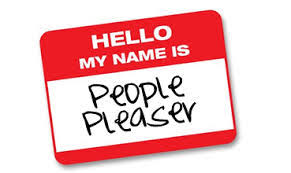
5 Tips for Solving Family Feuds
 Every family will experience conflicts at some time or another throughout a life time. Special occasions, events, and holidays can be difficult when family members are at odds with each other due to unresolved issues. Attempting to resolve problems within a family always leads to a happier and healthier family dynamic. The next time you are facing an issue in your family – try following these 5 Tips.
Every family will experience conflicts at some time or another throughout a life time. Special occasions, events, and holidays can be difficult when family members are at odds with each other due to unresolved issues. Attempting to resolve problems within a family always leads to a happier and healthier family dynamic. The next time you are facing an issue in your family – try following these 5 Tips.
1. Remind Yourself…The Problem is the Problem, Not the Person: When we are at odds with a family member, just hearing their name can make us have feelings of anger and distress. We can lose sight of what the problem is and begin to hate the person. Anxiety and anger can cloud our judgment and ability to reason. Stay focused on what the problem is and what specifically happened. Remember, we are all capable as human beings to hurt others in some way. Take a minute and imagine if you were the one who did the wrong and how that may feel. The person you are in conflict with will be in your family forever, the problem causing the conflict only exists as long as the family allows it to.
2. Own Up to Your Part: Take some time to think about how you may be contributing to the problem. Sometimes the pain is so overwhelming that we can’t see where we may be contributing to the problem, or our part in the problem may not be clear to us. Perhaps your part is that you feel stuck and can’t forgive and move forward. Perhaps you are avoiding addressing the issue because you prefer not to engage in drama, or maybe you simply hate conflict.
3. Have a Resolution Idea Before the Confrontation: Think of at least two ideas of how you think the problem can be resolved. Next, schedule a meeting with the family member or members and state the problem, own your part, listen to what they have to say, and offer your ideas for resolution. Be willing to hear their ideas and work together to come to an agreement. If the entire issue can’t be resolved in one meeting, set a time to meet again and continue the process of working toward complete resolution and restoration of the relationship. Let the other person know that restoration is important to you.
4. Realize It Takes Two: A relationship does not exist without more than one person. It takes two to fight and two to make up. Sometime we simply can’t resolve an issue no matter how hard we try. We have to accept the fact that at least for the present time, the relationship is over. This is challenging in a family because you may be forced to spend time with them at family functions throughout your life time. When this happens, make sure you have peace that you have tried your best and then work toward managing your emotions at family events so can enjoy yourself. Remember…the only person you can control is You!
5. Seek Counseling When Needed: Sometimes, people are so emotionally hurt or the issue is so complex that an objective third party is necessary to help both family members have a voice and work together to resolve issues and restore the relationship. When you feel like you have tried to mend the relationship with no success, try suggesting that you and the other family member or members schedule a counseling session together. Remember, the bottom line is restoring the relationship and enjoying peace and harmony in the family. Healthy relationships are part your overall mental and emotional well-being and learning to resolve conflict is a life skill we all need to develop.
There is Hope for Healing that leads to Harmony in Life through Counseling!

Signs of Codependency in Relationships | Are you a People Pleaser?
A healthy relationship consists of two people that understand the concept of each person being valuable and important. An understanding exists that we are each responsible for our own wellbeing and that I don’t have the power to make you happy or whole. A healthy relationship has an understanding that we help each other, sacrifice for each other, are supportive of each other and we must have a strong sense of self worth without taking responsibility for the other person’s self worth or self esteem. The relationship is not based on a 50/50 concept, but on a reciprocal concept of both making the effort toward a balance in the relational dynamics with healthy boundaries.
 Codependency is when a person is dependent on the approval of others for their own sense of identity and wellbeing. A codependent person has poor boundaries, the need to control resulting in them being manipulative at times, poor self worth, and they tend to take on the role of rescuer or caretaker. Oftentimes they self identify as the “fixer”. Someone who is codependent is basically looking for external validation for their own self worth. A healthy person understands that they can’t control other people’s thoughts, beliefs, or behaviors and they must find their sense of self internally, not externally.
Codependency is when a person is dependent on the approval of others for their own sense of identity and wellbeing. A codependent person has poor boundaries, the need to control resulting in them being manipulative at times, poor self worth, and they tend to take on the role of rescuer or caretaker. Oftentimes they self identify as the “fixer”. Someone who is codependent is basically looking for external validation for their own self worth. A healthy person understands that they can’t control other people’s thoughts, beliefs, or behaviors and they must find their sense of self internally, not externally.
Codependency is an unhealthy psychological belief system (usually developed in childhood) and set of behaviors that can exist in all types of relationships including marriage, colleagues, co-workers, parent/child, relatives, and friendships. Someone struggling with codependency is usually a very responsible person. In fact, they take on responsibility that is not theirs. They tend to be very caring and nurturing to the extent of sacrificing their own needs and wants to take care of others. Sometimes they are referred to as enablers when they are in a relationship with an addict and they believe they are helping the addicted loved one by giving them money and doing things for them that they can do for themselves. These behaviors and mindset are actually harming their loved one by contributing to the factors that keep the person stuck in addiction.
Below are signs you may be struggling with Codependency:
Someone has an issue or shares a problem with you and you feel responsible for solving their problem for them.
You find yourself giving advice whether you are asked for it or not.
You have a difficult time expressing your own opinion if it differs from others.
You have been called or self identify as a “people pleaser”.
You live in the thought life of “if I do this, then he/she will do that” or “if I do this, then things will get better”. You tend to live in the hope of what will be rather than the reality of what is.
You have difficulty being alone. You make decisions based on the fear the relationship will end.
Feeling unappreciated or used.
You overextend yourself. You take on extra work on a regular basis.
Tendency to be very hard on yourself.
You struggle to make decisions without the approval of others.
You have poor boundaries. You say yes when you really want to say no out of fear of hurting someone’s feelings. You will neglect yourself and your responsibilities to be available to help others.
Spend too much time worrying.
You feel victimized in relationships, you believe people are doing things to you verses taking responsibility for your own life and decisions.
Perfectionism.
You stay in friendships, committed relationships, and jobs when you know you should leave.
If you identify with the above signs, you are vulnerable to being abused in your relationships due to your need to please others and the pattern of minimizing your own needs.
You are valuable.
You can change.
Consider talking to a person you trust about your concerns you may be identifying with codependency.
Educate yourself on boundaries so you can begin to establish and maintain healthy boundaries.
Consider working with a therapist to identify what impacted your early development and how to take the steps to break the codependent patterns while developing a healthy sense of self worth and healthy boundaries.
Consider joining a 12-step program like Codependents Anonymous (CoDA).
- 1
- 2
